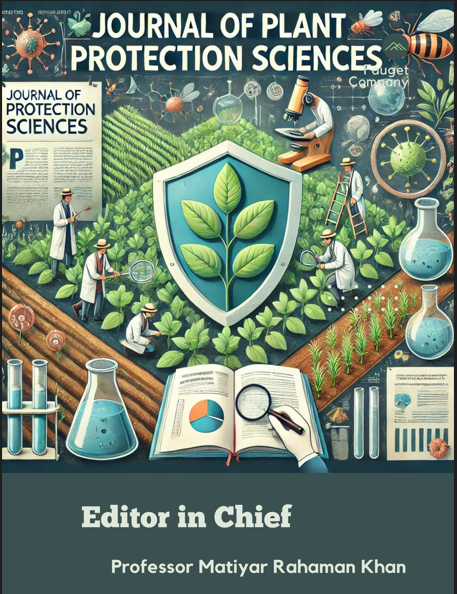Aims and Scope
The Journal of Plant Protection Sciences (JPPS) is dedicated to advancing the field of plant protection through the dissemination of high-quality, original research. Our journal aims to address key challenges and developments in plant protection science with a focus on practical applications and fundamental research.
Aims:
-
Promote Scientific Knowledge: To publish innovative and impactful research that enhances our understanding of plant protection and contributes to solving current and emerging challenges in agriculture.
-
Foster Research Excellence: To provide a platform for researchers to share their findings with a global audience, thereby advancing the field and encouraging further research.
-
Encourage Multidisciplinary Approaches: To support studies that integrate various disciplines within plant protection, including entomology, pathology, nematology, integrated pest management (IPM), biocontrol, agrochemicals, weed science, and soil science.
Scope:
JPPS accepts a wide range of research contributions related to plant protection, including but not limited to:
-
Entomology: Studies on insect pests, their biology, behavior, and control methods.
-
Pathology: Research on plant diseases, their causes, management strategies, and impact on crops.
-
Nematology: Investigations into plant-parasitic nematodes and their control.
-
Integrated Pest Management (IPM): Approaches that combine biological, cultural, physical, and chemical methods for effective pest control.
-
Biocontrol: Development and application of biological agents for pest and disease management.
-
Agrochemicals: Research on the development, application, and impact of chemical agents used in plant protection.
-
Weed Science: Studies on weed management, herbicide efficacy, and ecological impacts of weeds.
-
Soil Science: Research on soil management practices related to plant protection and crop health.
JPPS is committed to publishing research that contributes to sustainable agricultural practices, enhances crop protection, and supports global food security.

